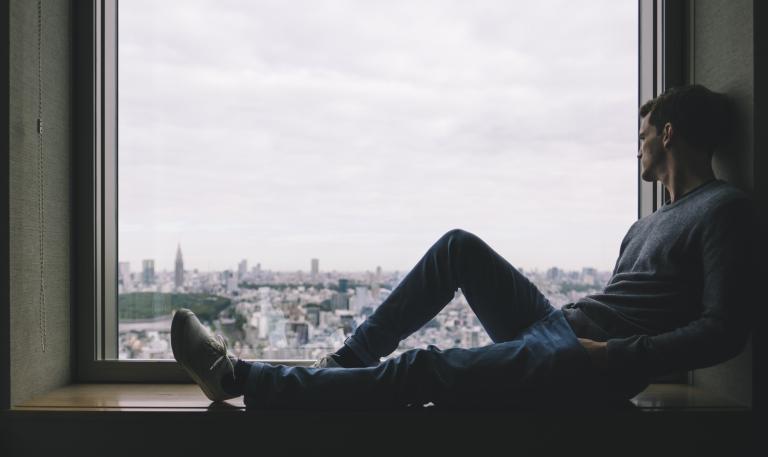My dog had to go on medication a couple of weeks ago. It makes her thirsty. She laps water by the bowlful. Consequently, she has to run outside every few minutes. A couple of times we’ve come down in the morning to find puddles on the floor beneath the dining table.
To try to prevent more of the same, I’ve been getting up in the middle of the night to let her out to do in the yard what no one wants her to do in the living room. Most mornings, this happens around 2:30. A few minutes later, I am back in bed, but settling down again takes time. I don’t wake up refreshed later. For the sake of my dog, and the living room rug, I’ve struggled through a lot of sleepy days lately.
I am not alone. CBS News reported earlier this year that our national lack of sleep costs us dearly. “Reduced productivity and an increased risk of death linked to lack of sleep among U.S. workers cost the nation’s economy as much as $411 billion a year,” they claimed. According to the CDC, more than a third of us aren’t getting enough sleep.
Clearly, we are a nation of non-sleepers. This isn’t the case because millions of people own incontinent dogs. There are other reasons.
People are busy. They have obligations. They have to work. On the other hand, many just stay up too late surfing the web, watching Netflix, playing video games. Whatever our individual reasons for staying up late, it is undeniable that prioritizing sleep contradicts our cultural values.
Sleep represents a limit. We cannot go forever without rest. We cannot go even for long periods without it. Most of need to rest after a mere 16 hours or so. Beyond that, we get miserable. The quality of what we produce at that point suffers. We can’t ignore our need for sleep forever. We suffer when we try.
Our culture, on the other hand, is a “no limits” culture. We loathe anything that gets in the way of the instant fulfillment of even our basest, fleeting desires. If we didn’t have to sleep, we would be free to pursue our pleasures without interruption, and yet, our very bodies conspire against us to slow down our consumption. We stay up late because we have internalized the cultural message that the point of life is consumption and sleep forces us to step away from consuming for hours at a time.
Just as sleep halts our consuming, it forces to take a break from producing. The flip side of a society obsessed with consumption is an unbalanced emphasis on production. We work long hours to pay for all our stuff. A lot of our training from childhood focuses us on being “productive” members of society. The point of schooling is to leave learning behind and emerge into the world of work where overtime is rewarded and your value is measured solely in the amount of work, often meaningless, trivial work, you complete.
A good night’s sleep contradicts the spirit of our work-obsessed professional culture. Turning in at a reasonable hour is a way of declaring, “I have done enough.” Pulling the blankets up around your shoulders sends the message that you are secure enough in what you have accomplished to still your hands from their frantic quest to grasp one more morsel, one more coin, one more accolade and to rest. Such daring action requires courage.
For both these reasons, going to bed at a reasonable hour is an act of cultural rebellion. When we commit to getting sufficient sleep we commit to the renewal of not just our bodies, but of our civilization. When we take the rest we need, we reject the conditioning that tells us to be 24/7 consuming and producing machines, and declare ourselves men instead.
When we lie down as men we can rise refreshed, ready for battle. Whatever struggle the day before us holds, we are more likely to come out of it victorious if we meet it with our full strength, something that can’t happen without adequate sleep. So, whatever you are doing now at night, you must ask yourself whether it is important enough to require you to face tomorrow at less than your best. Probably, it isn’t. You should probably be in bed. And, unless your sick dog demands otherwise, you should probably stay there a while.











